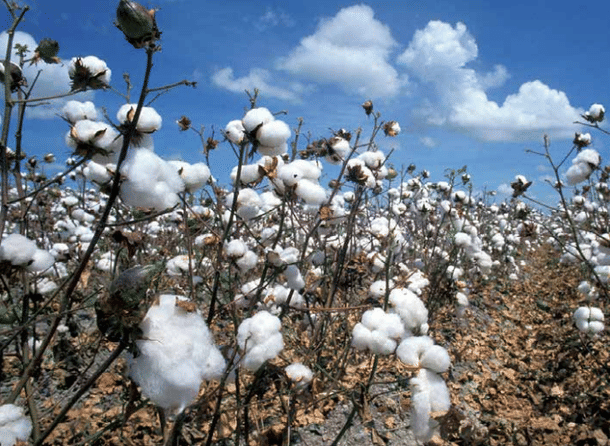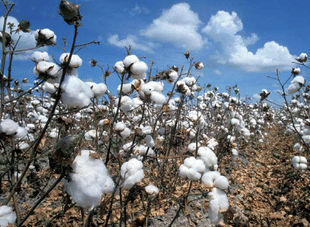Magazine
How Long Must We Wait?
Vivian Fernandes
Aug 29, 2016, 07:38 AM | Updated 07:38 AM IST
Save & read from anywhere!
Bookmark stories for easy access on any device or the Swarajya app.


For the agricultural biotechnology industry, “Unmake in India” would be an appropriate slogan. There are very few companies in India engaged in genetic engineering to improve the yields of crops or help them cope with drought, salinity or specific pests. But quite a few have shut down or pruned their research departments because of regulatory uncertainty.
The German company, BASF, has closed down its rice improvement programme based on genetic modification (GM) technology in Tamil Nadu. A company executive attributed the downsizing to a global portfolio review.
Ram Mudholkar, DuPont’s President for South Asia acknowledged “eliminating some positions” at its knowledge centre in Hyderabad. In an email statement, he attributed it to a strategic global restructuring plan designed to make the company more competitive and efficient. The centre was the company’s sixth such facility when it was set up in 2008. Those told to go were engaged in agri-biotech research.
Advanta, an Indian seeds company with a presence in many countries, has also laid off researchers. Both Mahyco India and Monsanto, which introduced India to Bt cottonseed, have cut staff, the latter blaming it on a downturn in the global agri-commodities business. India approved GM cotton for cultivation in 2002. Till date it remains the only GM crop which farmers can cultivate. It produces its own insecticide, derived from the bacterial Bt gene, which is toxic to bollworms. By preventing damage caused by the pest, it has raised India’s production severalfold. In 2014-15, India became the world’s second largest cotton producer, after China.
India should build on the success of Bt cotton, Chief Economic Adviser Arvind Subramanian has said. This year’s Economic Survey wants India to practice more-from-less agriculture, using GM technology, scientific agronomic practices and drip irrigation to conserve water and fertiliser. NITI Aayog asserts that India will have to rely on GM technology to cope with climate change and feed a growing population.
GM crops were grown on 180 million hectares in 28 countries. There is no evidence that they pose health or environmental risks, the US National Academy of Sciences said in a report published earlier this year. A few weeks ago, 110 Nobel Laureates urged Greenpeace, the environmental NGO, to “cease and desist”, in its campaign against GM crops, particularly Vitamin A-enriched Golden Rice.
They vowed “to do everything in their power to oppose Greenpeace’s actions and accelerate the access of farmers to all the tools of modern biology, especially seeds improved through biotechnology”. The Nobel Prize winners said, “opposition based on emotion and dogma contradicted by data must be stopped.” All except 10 of them were from the fields of physics, chemistry and medicine.
But anti-GM activists will not listen. In 2010, they blocked the release of Bt brinjal with not a little help from then Environment Minister Jairam Ramesh. Bangladesh permitted its cultivation in 2013 based on Indian bio-safety data.
At the moment, they are opposing Dhara Mustard Hybrid (DMH)-11 developed by a Delhi University team lead by geneticist Deepak Pental with funding from the National Dairy Development Board and the Department of Biotechnology. They assert there is no need for the genetically modified hybrid which, in trials, has yielded 28 per cent more than a blockbuster seed called Varuna, despite a severe shortage of cooking oil. In 2014-15, India imported 63 per cent of its 20 million tonne requirement at a cost of more than $10 billion.
Last November, Pental submitted a 3,000-page dossier containing the results of all the prescribed tests for allegenicity, pollen flow, bee visits, insect attacks and yield levels. The then Environment Minister Prakash Javadekar had told this correspondent he was “determined” to approve GM mustard. But he waited too long. In the last Cabinet reshuffle, he was moved to another ministry with a higher rank.
In a WhatsApp group chat, S.R. Rao, Adviser in the Department of Biotechnology and the Genetic Engineering Approval Committe member said: “…safety (of DMH-11) has been assessed beyond doubt. Proof of concept for heterosis (hybrid vigour) is amply demonstrated.”
There is opposition to GM technology from groups within the Sangh Parivar, who conflate it with American multinationals, mainly Monsanto. Agriculture Minister Radha Mohan Singh has made the technology an us-vs-them issue. In mid-May, his ministry issued a notification under the Essential Commodities Act, virtually stripping Mahyco-Monsanto of its patent for the popular two-gene insecticidal Bt cotton technology in India. The notification said the owner of a proprietary GM trait could not deny it to any seed company if it met prescribed government norms. It also put a cap on the fees that could be charged. Earlier, the ministry had brought Bt cottonseed under price control.
Davor Pisk, Chief Operating Officer of Syngenta, a Swiss multinational acquired by a Chinese company mainly for its pipeline of genetically enhanced seeds, said “these new rules would require us to rethink the level of resources and priority we put in the Indian market for biotech crops as compared to the other markets”. Pisk was visiting India at that time. The ministry converted the notification into draft within less than a week, but its partisan behaviour and casual treatment of intellectual property rights will unnerve technology innovators.
India is a tough place for agri-biotechnology companies. Bihar’s Chief Minister Nitish Kumar will not allow trials of GM crops. Kerala is intransigent. Maharashtra suspended trials after Devendra Fadnavis took over as Chief Minister. Andhra used to be supportive but not anymore. Telangana has given the thumbs down. Rajasthan turned hostile after the BJP’s Vasundhara Raje formed the government. The same is the case with Haryana. Gujarat allows trials only of GM cotton. Delhi permits trials but has little agriculture. Punjab is the only big state which is open.
Currently, 16 GM crops, including maize, cotton, soyabean and sugarcane are undergoing trials for assessment of risks to humans, animals and the environment. It is difficult to make a wise guess as to when farmers will be allowed to cultivate them.
Farmers want new traits that will improve their profitability. National sample surveys have shown that labour has a significant share in agricultural costs. Workers are not available for activities like weeding when needed. Large swathes in Gujarat, therefore, have been planted with smuggled herbicide-tolerant cotton, supplied initially by a Junagadh-based company, a marketing executive of a cottonseed company said. The risks of such seeds have not been assessed but regulators look the other way.
Bt technology developed by public research institutions and private companies, if allowed for use in pigeonpea (tur) and chickpea (chana) against pod borers would save about a third of the harvest, and provide relief from rising prices.
If India is squeamish about foreign-produced science, it must develop its own, says Arvind Subramanian. Otherwise, the country’s dependence on imported science will increase in the long run. Agri-biotechnology does not attract the country’s young researchers; they do not see a future in it.
Indian regulators are not blind to the costs imposed by a negative attitude to GM technology. They are cautious because the political leadership is risk-averse.
Vivian Fernandes is editor of www.smartindianagriculture.in
Vivian Fernandes is editor of www.smartindianagricuture.in, a website devoted to promoting modern practices in agriculture including use of genetically-engineered seeds.





